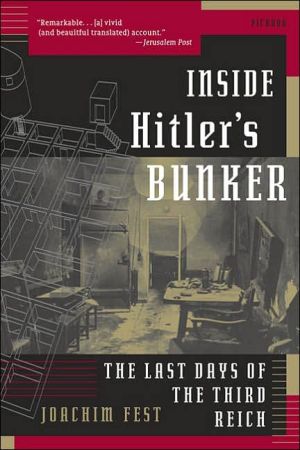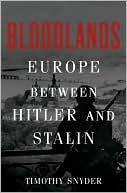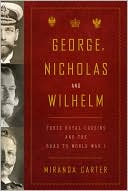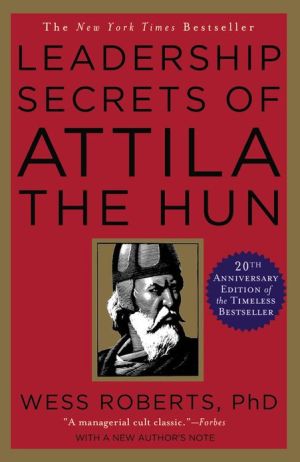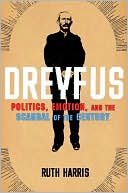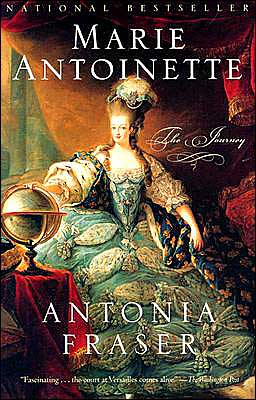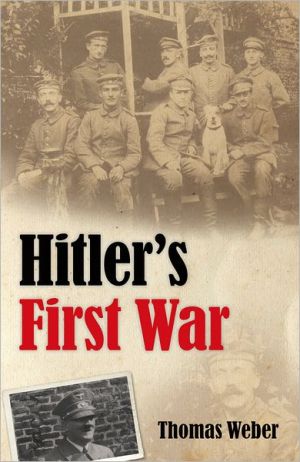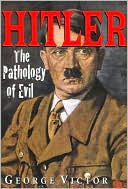Inside Hitler's Bunker: The Last Days of the Third Reich
Fest describes in riveting detail the final weeks of the war, from the desperate battles that raged night and day in the ruins of Berlin, fought by boys and old men, to the growing paranoia that marked Hitler’s mental state, to his suicide and the efforts of his loyal aides to destroy his body before the advancing Russian armies reached Berlin. Inside Hitler’s Bunker combines meticulous research with spellbinding storytelling and sheds light on events that, for those who survived them, were...
Search in google:
Fest describes in riveting detail the final weeks of the war, from the desperate battles that raged night and day in the ruins of Berlin, fought by boys and old men, to the growing paranoia that marked Hitler’s mental state, to his suicide and the efforts of his loyal aides to destroy his body before the advancing Russian armies reached Berlin. Inside Hitler’s Bunker combines meticulous research with spellbinding storytelling and sheds light on events that, for those who survived them, were nothing less than the end of the world. Library Journal German journalist and historian Fest (Hitler: A Biography) has penned another admirable study of Nazi Germany that focuses on the final, cataclysmic days of Hitler's Third Reich in the F hrer bunker beneath Berlin. Four factual chapters chronicle events as reconstructed by reliable eyewitness reports and interviews. They are complemented by four reflective chapters that look at the "deeper meaning" behind those events. Reprising a theme from his Hitler biography, Fest describes his subject essentially as a supreme nihilist. The destruction in the final weeks of the war, engendered by Hitler's obstinate refusal to end the fighting long after defeat was certain, gave him, according to Fest, a "greater sense of satisfaction" than any of his early victories. The tragic devastation was further compounded and abetted by the "inculcated obsequiousness" of Hitler's entourage and leading generals, who did little or nothing to stop him. While there are no surprising revelations, Fest does synthesize a daunting body of research obtained from disparate, if sometimes dated, sources into an accessible narrative. Highly recommended for public and academic libraries. [Previewed in Prepub Alert, LJ 12/03.]-Edward Metz, Combined Arms Research Lib., Ft. Leavenworth, KS Copyright 2004 Reed Business Information.
Excerpt from Inside Hitler's Bunker: The Last Days of the Third Reich by Joachim Fest, translated by Margot Bettauer Dembo. Copyright © 2002 by Alexander Fest Verlag. Translation copyright © 2004 by Margot Bettauer Dembo. To be published in April, 2004 by Farrar, Straus & Giroux, LLC. All rights reserved.\ \ \ One\ The Battle Begins\ \ At 3 a.m. several flares rose into the night sky, flooding the bridgehead near Küstrin with brilliant red light. After a moment of oppressive silence a thunderous roar shook the Oder lowlands Far beyond Frankfurt. As though set off by an unseen presence, sirens began to howl, telephones jangled, and books fell off shelves in places as far away as Berlin. It was April 16, 1945, the day the Soviets launched their offensive against Berlin with twenty armies, two and a half million soldiers, and more than forty thousand mortars and field guns, as well as hundreds of multibarreled Katyusha rockets—almost five hundred rocket barrels per mile. Immense pillars of fire leaped up around the villages of Letschin, Seelow, Friedersdorf, and Dolgelin, forming a wall of lightning flashes, spurting clods of earth, and flying rubble. Whole forests went up in flames, and survivors later recalled the hot windstorms that swept through the countryside, turning everything into fire, dust, and ashes.\ \ After half an hour the hellish noise suddenly stopped and for a few seconds a strange stillness set in, broken only by the crackling of fire and the howling of the wind. Then the beam of a Soviet searchlight blazed straight up into the sky—the signal for 143 spotlights to be switched on. These were spaced abouttwo hundred yards apart and were aimed horizontally across the battlefield. Their blinding beams revealed a deeply furrowed landscape, and broke up only a few miles away when they hit the Seelow Heights, that day's target for Marshal Georgi K. Zhukov, commander-in-chief of the First White Russian Front. His order initiating the battle: "The enemy must be crushed on the shortest route to Berlin. You must capture the capital of fascist Germany and raise the banner of victory over the city!"\ \ The dramatic light show, referred to in Soviet planning circles as Zhukov's "miracle weapon," proved to be a failure and cost the Russians heavy casualties. Despite objections, Zhukov had stuck with his plan to "blind" the enemy forces, who, he believed, would already be confused and discouraged as a result of the continuing artillery fire, making them unfit to fight. Thus, in their first onslaught, the Soviets would be able to overrun the ridge, which was nearly ninety feet high and interspersed with hollows and slopes. But the dense curtain of smoke and battle haze that the heavy barrage had laid over the plain only swallowed up the beams of the searchlights, and the attackers found themselves wandering about helplessly in the murky twilight. Moreover, it turned out that the Soviet high command had completely misjudged the difficulty of the terrain, which was crisscrossed by canals, watery marshes, and drainage ditches, and was, during April, subject to springtime flooding. Troop carriers, trucks, and heavy equipment of all sorts got mired in the boggy ground, slipped deep into the mud, and had to be abandoned.\ \ But, worst of all, just before the start of the battle, the commander of the German Army Group Vistula, General Gotthard Heinrici, who was familiar with the Russian commander's tactics, had pulled back his farthest forward defensive units, and for the most part the Soviet fire missed its target. Consequently, when the attacking Soviet infantry units—led and accompanied by massive contingents of tanks—came storming out of the billowing smoke with piercing yells and fluttering flags, the far weaker defenders, who were mostly assembled from the remnants of repeatedly decimated units, merely waited till they were close enough and then shot almost randomly into the teeming shadows. At the same time hundreds of German antiaircraft guns, their barrels lowered, opened fire as soon as the outlines of the advancing tanks materialized in the diffuse light. By daybreak the onslaught had been repulsed, with the attackers sustaining heavy losses.\ \ Zhukov's first mistake was followed by a second. Disappointed, desperate, and pressured by an angry Stalin, he decided to make a change in the previously agreed-upon strategy. He ordered his two tank armies, which had taken up positions behind the front, to go into action. Originally they were to wait until a sizable breach had been made in the German defensive line, but now they advanced to the battlefield, increasing the confusion that already reigned in the rear of the fighting troops. The tanks forced their way down clogged roads past disoriented units, preventing a redeployment of the artillery, and cutting off the access roads for reinforcements and supplies. And since the tanks went into action without a coordinated strategy, they produced utter chaos that soon led to the complete crippling of the Soviet operation. On the evening of April 16, one of Zhukov's army commanders, General Vasili I. Chuikov, noted that the Soviet units had not carried out their assignments and had not advanced "a single step" in some places. The plan to capture Berlin on Day Five of the offensive had failed.
Forewordvii1The Battle Begins32Hitler in German History: Consistency or Catastrophe?333"The War Is Lost!"444Finis705Banquet of Death836The Will to Destroy1237Capitulation1358The End of a World165Bibliography175Index183
\ Library JournalGerman journalist and historian Fest (Hitler: A Biography) has penned another admirable study of Nazi Germany that focuses on the final, cataclysmic days of Hitler's Third Reich in the F hrer bunker beneath Berlin. Four factual chapters chronicle events as reconstructed by reliable eyewitness reports and interviews. They are complemented by four reflective chapters that look at the "deeper meaning" behind those events. Reprising a theme from his Hitler biography, Fest describes his subject essentially as a supreme nihilist. The destruction in the final weeks of the war, engendered by Hitler's obstinate refusal to end the fighting long after defeat was certain, gave him, according to Fest, a "greater sense of satisfaction" than any of his early victories. The tragic devastation was further compounded and abetted by the "inculcated obsequiousness" of Hitler's entourage and leading generals, who did little or nothing to stop him. While there are no surprising revelations, Fest does synthesize a daunting body of research obtained from disparate, if sometimes dated, sources into an accessible narrative. Highly recommended for public and academic libraries. [Previewed in Prepub Alert, LJ 12/03.]-Edward Metz, Combined Arms Research Lib., Ft. Leavenworth, KS Copyright 2004 Reed Business Information.\ \ \ \ \ Kirkus ReviewsA vivid reconstruction of the final weeks of Hitler's regime. In mid-April 1945, the Soviets launched an offensive against Berlin "with twenty armies, two and a half million soldiers, and more than forty thousand mortars and field guns"-an avenging force of an almost unimaginable size and scale. Hitler retreated into the Reich Chancellery, but not before warning that this "Asian onslaught" had to be stopped; if it were not, he warned, Germany's "old people, men, and children will be murdered, and women and girls will be forced to serve as barracks whores." Thus inspired, the Volksturm and Wehrmacht units charged with defending the city put up a stiff fight, even as Hitler continued to imagine that with Franklin Roosevelt's death the Western Allies would realize that their enemy was Russia and join Hitler's crusade. The fall of Vienna to the Soviets put an end to that vision, and Hitler-physically and mentally ill-waited out Marshal Zhukov's arrival while gorging himself on chocolate cake. An inglorious end, that, and German historian Fest (Speer: The Final Verdict, 2002, etc.) surprises with a number of unreported or overlooked details-such as a letter that Albert Speer had written to Hitler only a few weeks before, chiding him "for equating the existence of Germany with his own life span, describing this as an egocentricity unparalleled in history." For all that, Hitler shot his wife and then himself, leaving it to the handful of remaining stalwarts to burn their corpses. Fest confirms that widely published photographs of Hitler's corpse were a hoax, but adds the intriguing note that many of the theories concerning Hitler's supposed survival came straight from Josef Stalin: "Once he saidthat Hitler had escaped to Japan in a submarine; another time he mentioned Argentina; and later he said something about Franco's Spain." A well-considered slice of the Nazi era, and one with a happy ending.\ \
